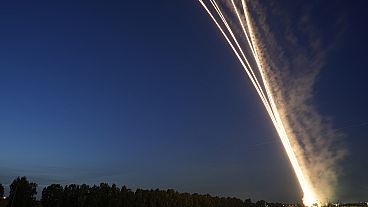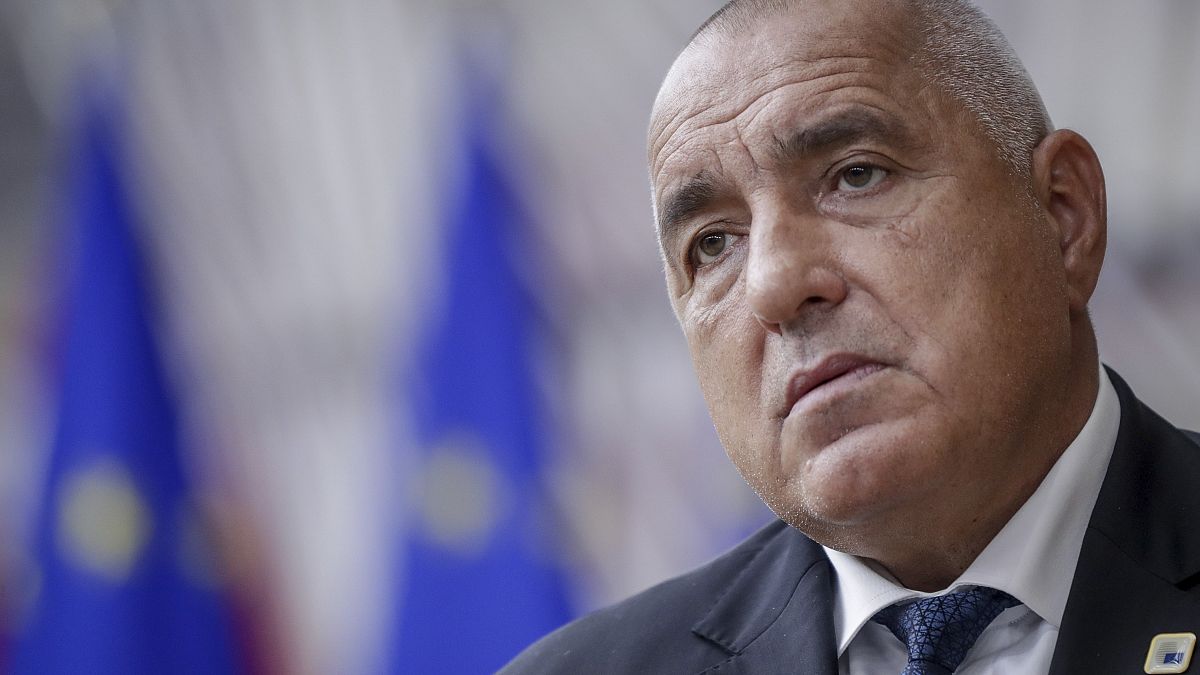Bulgaria's veto over accession talks with North Macedonia is allegedly over language but domestic and EU politics may play just as big a role.
More than a decade-and-a-half after it first applied, what is now The Republic of North Macedonia appeared to be sprinting down the home straight towards EU membership.
A long-running name dispute with its southern neighbour Greece had seen Athens put up obstacle after obstacle to Skopje joining the bloc. Athens objected to the name Macedonia — already used by one of its northern regions — but the two sides reached a historic deal last year that settled the argument and put the newly-renamed Republic of North Macedonia within sight of the finishing line.
EU leaders gave the green light for North Macedonia and Albania to begin formal talks to join the bloc in March.
But another hurdle has crept up, this time from the country's eastern neighbour, Bulgaria.
Sofia, currently engulfed in long-running anti-government protests, has objected to membership talks getting underway, saying it is unhappy with the "current negotiating framework".
Bulgaria’s foreign ministry did not give specific reasons for its dissatisfaction, simply saying the current framework "does not provide the legal guarantees sought by Bulgaria". It insists its "demands" are formally added to the negotiating documents.
Macedonian or Bulgarian?
Just like with Athens, Sofia's issue is one of name, this time pertaining to language.
"Bulgaria's objections over North Macedonia's accession bid have to do with history and identity. Particularly, Bulgaria wants North Macedonia to acknowledge that the language spoken by the Slav Macedonian majority in North Macedonia is not "Macedonian" but Bulgarian —or a dialect thereof," Angelos Chryssogelos, Associate Fellow of the Europe Programme at Chatham House, told Euronews.
"They also want Skopje to recognise the "Bulgarian origins of the "Macedonian" nation" and to give up any claims they may have that there is a separate "Macedonian" minority in Bulgaria, which Sofia does not recognise as it considers all those who call themselves "Macedonians" as Bulgarians," he added.
Over the past two weeks, the countries have been in talks to try and find a solution before a meeting involving the foreign ministers of EU member states, which was planned for November 10 but has now been pushed back.
According to the International Institute for Middle East and Balkan Studies (IFIMES), ethnic Macedonians make up 10 per cent of Bulgaria's population.
The organisation also argued in a recent note that "the Bulgarian and Macedonian languages are two different languages for which cross-language communication requires interpretation/translation, unlike, in example (sic), in the case of the Serbian and Croatian languages for which cross-language communication does not require interpretation/translation."
Bulgaria trying to 'extract EU concessions'
But domestic and EU politics, just as much as history, might be playing a role.
Anti-corruption protests have been ongoing in Bulgaria for more than 100 days with protesters calling for Prime Minister Boyko Borissov and the country's top prosecutor, Ivan Geshev, to step down. They accuse the two men of colluding with an oligarchic mafia.
Borissov, who has refused to resign, has so far survived five votes of no confidence.
"The uncomfortable truth is that the enlargement process is an attractive tool for EU members to push policies and changes on their non-EU neighbours," Chryssogelos said.
"For Bulgaria, North Macedonia's accession process is a way to extract concessions at an extremely delicate moment for Skopje. Quite importantly, however, as most of these demands concern intangible issues of identity and history, they reflect the need for the Bulgarian government to adopt strong nationalist posturing for domestic political reasons. Especially as in recent months it has faced corruption allegations, street demonstrations and an economic downturn due to the pandemic," he added.
EU's image damaged in the Balkans
Bulgaria became a NATO member in 2004 and joined the EU three years later.
Last year Brussels considered that Bulgaria's progress on reforming its judiciary, fighting corruption and tackling organised crime since then had been "sufficient", but noted room for improvement.
It has since become tougher on matters on rule of law, but analysts have still decried the bloc's slowness to react and the lack of punishments.
The Commission, for instance, "mildly rebuked the government's attempts to end the protests by force", Judy Dempsey of the Carnegie Europe think tank has said.
She argued that Borissov's days in power could be numbered if the group his party belongs to in the EU Parliament — the European People's Party (EPP) — were to speak out against him but that, just like with Hungary's Viktor Orban, "the EPP is taking a soft line on Bulgaria too."
For Chryssogelos, "the incident is yet another signal of the deep complications that make the EU's enlargement policy — once its most effective foreign policy tool — a weak and ineffective instrument today."
"It shows that, as the EU gets bigger and more diverse, it is becoming increasingly difficult to settle on common policies and norms of its foreign policy without specific national agendas getting in the way.
"This damages the EU's image in the region and makes it doubtful that its enlargement promise will look credible to other Western Balkan states," he added.
Croatia was the first of the seven countries to join the EU in 2013 while Montenegro, Serbia, the Republic of North Macedonia and Albania are official candidates. Bosnia and Herzegovina and Kosovo are potential candidate countries.


